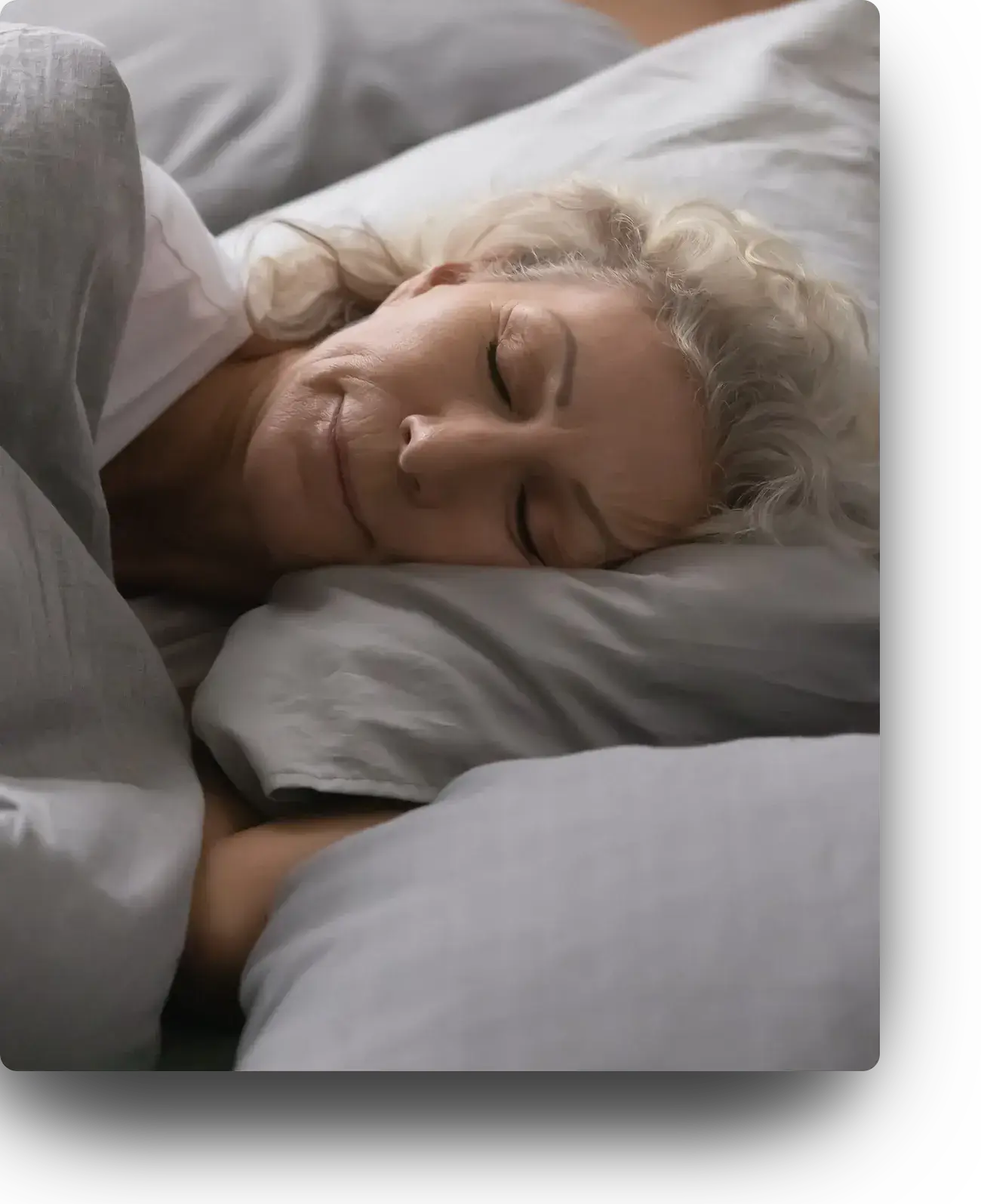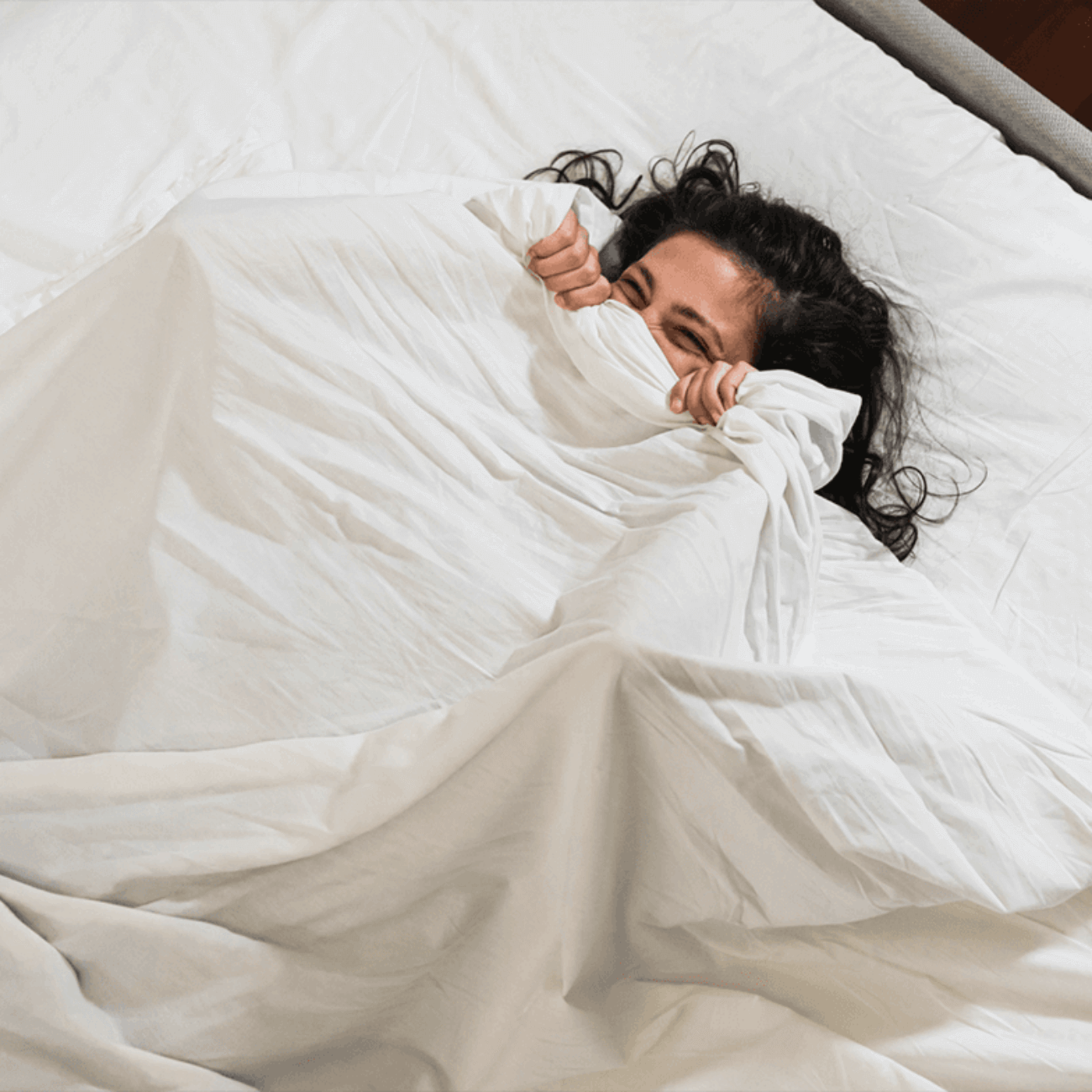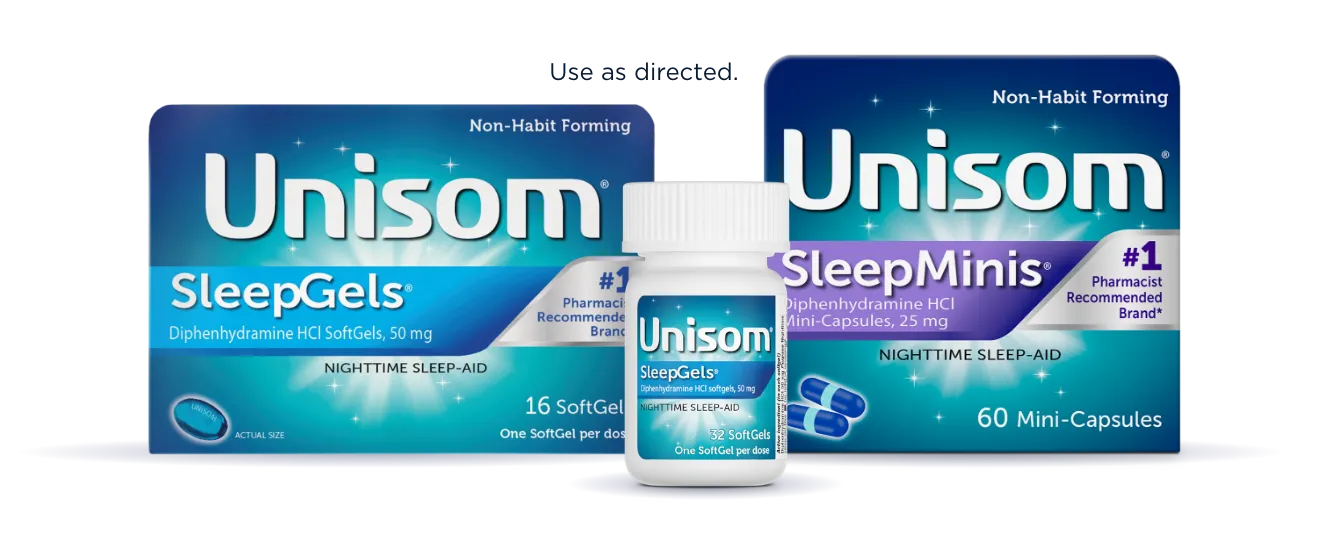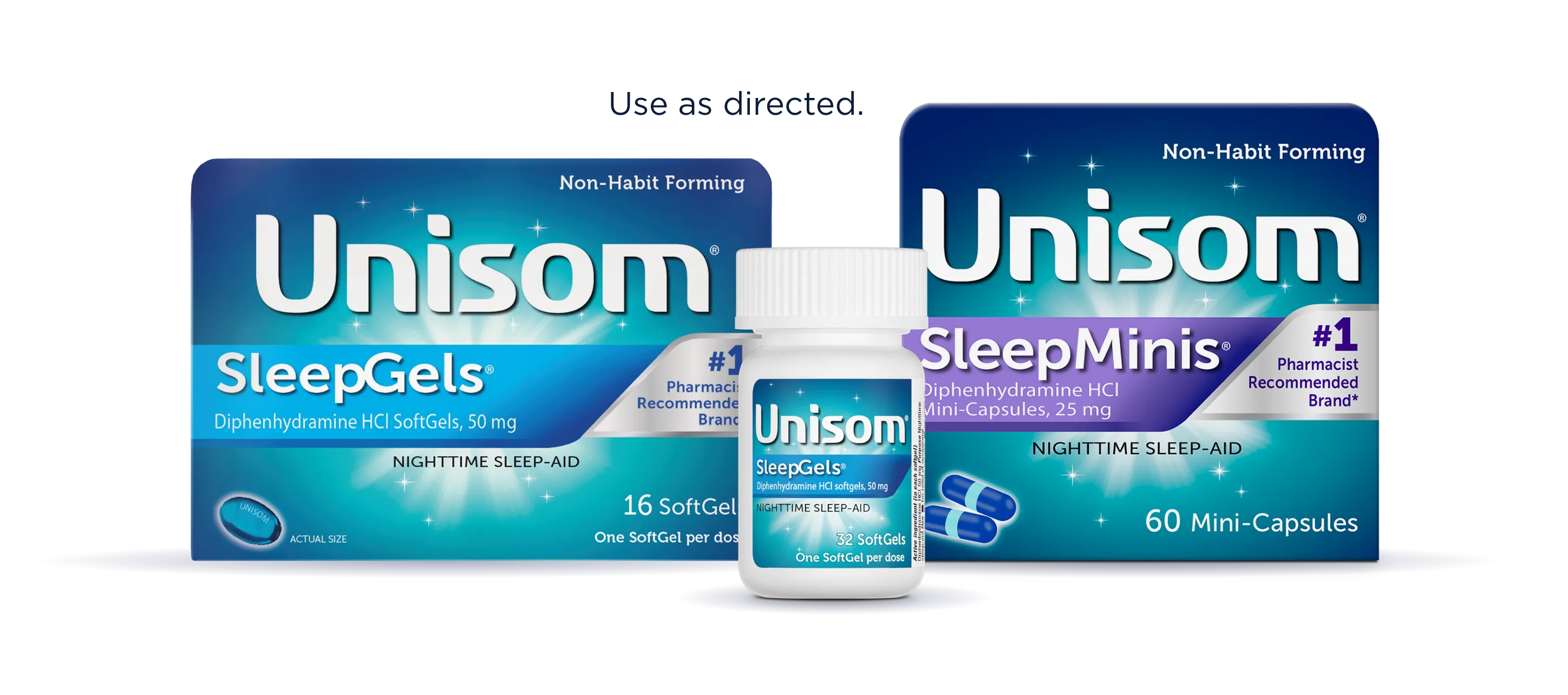For millennia, all the way up until the 1950s, the popular belief about sleep was that it took place in a passive state, in which both the mind and body were dormant. However, modern science has shown that this philosophy couldn’t be further from the truth when it comes to what happens when you sleep. In fact, as you snooze, your mind and body are actively engaged in numerous processes that directly contribute to your health, wellbeing, and overall quality of life.1
If you’ve ever wondered what happens to your mind and body while you sleep, read on. We’re sharing the keys to understanding sleep. Learn all about sleep cycles, the sleep stages within them, and the fascinating (or some might even say weird) things that happen when you sleep.
What Happens When You Sleep?
While sleeping is often associated with a blissful state of shut-eye, it’s far more complex than you may know. Research shows that there are a range of mechanisms that kick into action when you doze in direct support of your mental, emotional, and physical health.2
As your conscious mind tunes out and body movements slow during your slumber, your unconscious focus is shifted to restoration—making any repairs and refilling your tank with energy to drive your performance the following day and over the long-term. This tune-up and refueling occurs as you drift throughout multiple consecutive 70- to 120-minute sleep cycles, each one composed of four distinct sleep stages: dozing, light sleep, deep sleep, and rapid eye movement (REM).
If you’re lacking proper sleep, your mind and body can essentially short-circuit, leading to poor energy levels, as well as cognitive impairments, trouble concentrating, and a sour mood, among other issues. (More on those other detriments a bit later.)
And it’s not all a numbers game. Although, ideally, adults should get seven to nine hours of sleep each night—and teenagers and kids even more—a good, productive night’s sleep is more about quality than quantity. This means spending enough time in each of the four sleep stages during your nighttime sleep cycles (a.k.a. getting all you can out of every corner of your “sleep architecture”).
What Happens to Your Mind When You Sleep?
Each of your sleep stages has a unique pattern of brain waves, which calls the shots on what happens to your mind when you sleep. As you begin each of your sleep cycles by drifting into Stage 1, everything—including your muscles, breathing, pulse, and brain activity—starts to slow down. (This transition is also when you might encounter those familiar sleep “twitches” as you drift off.) When you traverse through stages 2 (light sleep) and 3 (deep sleep), although your overall brain waves progressively slow even further, they’re percolated by short bursts of activity designed to help distract you from potential disruptors in your environment.
By the time you reach Stage 4 REM sleep, however, your brain activity ramps up, rivaling levels of when you're awake. This phase is thought to be the most crucial for consolidating your memories, as well as priming all the cognitive abilities you’ll use when you’re awake. And, although you can technically dream at any stage of sleep, all this heightened brain activity is also why REM sleep is when you dream your most vivid, engaging, and even wacky dreams. (It’s no wonder why this is the stage that’s considered crucial for both learning and creativity.)
What Happens to Your Body When You Sleep?
Signals from those rollercoastering brain waves then conduct the symphony of what happens to your body when you sleep. As we touched on, you go into repair and restoration mode, and your breathing and heart rate slow in the first three sleep stages. But, as you enter REM sleep, along with your brain activity, they both quicken, with your breaths potentially irregular and your pulse pumping at nearly the same pace as when you’re awake.
And while your major muscles relax even more the further you fall into your sleep—aside from your eyes, which will soon begin to quite literally jump rapidly around—by the time you’re in REM, large muscles—like your arms and legs—become atonal, otherwise known as totally relaxed or temporarily paralyzed. (Though this paralysis may sound intimidating, it’s actually nature’s way of looking out for you by ensuring you don’t act out your dreams and accidentally end up hurting yourself.)
In coordination with your brain, your body is then signaled by your circadian rhythm, or internal clock, to regulate the production and release of various hormones: melatonin to help you along your sleep journey, growth hormone to support, develop, and repair your bones and muscles, leptin and ghrelin for appetite control, and cortisol to help manage stress. Hormonal levels may fluctuate throughout your sleep stages, and, interestingly, the overall quality of your sleep is linked to proper production of hormones you’ll utilize during the day.
What Are Some Symptoms of Sleep Deprivation?
As you can imagine, since sleep has an effect on nearly every system in your body, as well as vital mental processes, being deprived of quality Zzzs can wreak havoc from head to toe—in both the short- and long-term.
You may be familiar with the groggy, gritty, eyes-half-open feeling of a poor night’s sleep. But, aside from dulling your alertness and slowing your performance for the day, sleep deprivation significantly impairs your overall brain function—impeding your ability to learn, remember, and respond to information you come across during the day. If left unchecked, a chronic lack of sleep can leave you vulnerable to a whole host of ailments, from new or worsening depression, migraines, and high blood pressure to compromised immunity. It can disrupt your metabolism, make you prediabetic, and, in severe situations, cause seizures.
Thankfully, there’s no reason to suffer alone, or allow difficulty falling asleep—or waking refreshed—to commandeer your life. There are an array of over-the-counter (OTC) sleep-aids you can try. Of course, if you’re concerned about the amount and quality of sleep you’ve been getting, always talk to your healthcare provider.
Rest Assured
Nobody enjoys tossing and turning, or waking just as—or more—tired than before they went to bed. Fortunately, there are options available to you. As the #1 pharmacist and doctor-recommended OTC sleep-aid brand, you can count on Unisom® to help you fall asleep faster and wake up feeling refreshed. Here are some options to consider.
Unisom® SleepGels® contain the histamine blocker sleep-aid diphenhydramine HCI. Blocking histamine production can help you fall asleep faster and stay asleep.
Unisom® SleepTabs® contain doxylamine succinate, which is a clinical-strength histamine blocker that works in a similar fashion to diphenhydramine. Unisom® SleepTabs® can help you fall asleep 33% faster and get a full night's sleep.
Find the Unisom product that’s right for you and download the Unisom Sleep Diary.
|
† These statements have not been evaluated by the Food and Drug Administration. This product is not intended to diagnose, treat, cure or prevent any disease. |
This article is not a substitute for medical advice. Unisom is only intended to help with occasional sleeplessness. If you are suffering from ongoing sleep concerns, seek the help of a medical professional.
Professional References
1. John Hopkins Medicine. “The Science of Sleep: Understanding What Happens When You Sleep.” 2022.
2. Sleep Foundation. “How Sleep Works.” 2022.
Related Articles
†These statements have not been evaluated by the Food and Drug Administration. This product is not intended to diagnose, treat, cure or prevent any disease.

.png)




